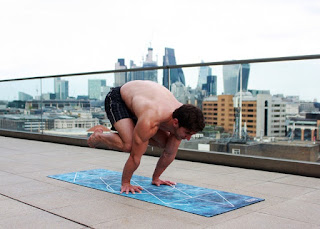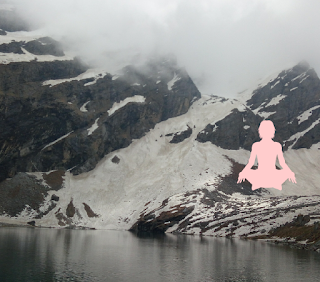What is the difference between Kaki mudra and Kak asana | benifits
Mudra and Bandha are certain postures of the body that be completed
in the stable postures and during of doing pranayama; and at last be used in
meditation. By adopting yoga’s principal the aspirant easily be gained not only
the health but also kundalini is
successfully awakened, step by step by using Yoga’s technique the aspirant will
definitely perceived things better of which was seemed difficult before. Asanas
enhance blood circulation, increase flexibility, strength and make the body
more energetic.
Kaki means crow. Kaki mudra have
been learned through observing crow’s activities by ancients yogis that how it
becomes healthy whole of its life with the full vigour and keen observation
within. Yogi found the secret from
their breathing technique that keeps them healthy throughout life. Kaki mudra
covers all glands and entire abdomen and keeps on all Prana-vayu be balanced in
the body. Kaki mudra practise by aspirant with little bit variation like
someone of doing it with jalandhar bandha and inhale through the lips and out
through the nose or mouth, either fill the air first in the lungs or fill the
air in the stomach.
Kaki mudra:
Choose quiet and pollution free
place.
Sit in the comfortable asana.
Make your lips as like the beak of a crow.
Draw in air slowly and to fill
the stomach.
Bend your head so that chin
touches the throat.
Hold within for some time and
drawn out through the mouth.
Repeat it as much as you can. Beginners
must be start with one minutes and gradually be increases its length time.
Precaution: after meal avoid to
do kaki mudra.
Health Benefits: kaki mudra
enhances secretion of gastrin. Gastrin is a hormone produced by the pyloric
gland area of the stomach that stimulates the secretion of gastric acids. It
stimulates the secretion of pepsin; an enzyme produced by the stomach that
chemically breaks down peptide bonds in polypeptides and proteins. Kaki mudra
stimulates a protein splitting enzyme and hydrochloric acid. Kaki mudra
improves digestion and cures all disorders of the stomach and it happens the
same as like of a crow. Kaki mudra reduces skin blemishes and increases facial
lustre within a few days. It enhances thyroid and parathyroid, are known for
immune system and heat supplier of the body that which affects the stomach
further.
Kak asana is also known as the crow posture and one of the most balancing asana. The body
weight supported on the elbows which is twisted a little and hands on the
ground firmly placed, while push the head well forward by leaning the body far enough
in front of you, this helps to keep your mind from wondering. Kak asana
strengthens the wrists, arms, shoulders and spine as well as enhancing concentration
and balancing the breath by expanding the chest. Kak asana puts pressure on the
chest, expanding it in all directions the whole chest gets rejuvenating effects
which is like a massage for the lung, whilst strengthening the lungs,
respiratory system and the heart. Kak asana works by clearing blockage from the
astral Nadis and improving prana energy flow into the chakras and internal
organs.


Kak asana
Squat down and breathe normally
and bring your arms between your knees.
Place your palms flat on the
ground in front of you firmly.
Be shoulders width apart with
fingers spread wide that pointing slightly outward.
Bend your elbows out to the sides
in such a manner that you can put your knees to rest on the backs of the arms
properly.
Eye should be focused forward at
a point on you want to focus.
Inhale and lean forward and put
weight onto your hands and lift your toes up and make sure you balance the body
weight on your hands.
Exhale and hold the pose for some
time and come back to initial position without jerk.
Benefits
Kak
asana gets strengthen the chest, hands and shoulder and keeping the mind to be
composed and to enhance concentration.


Very nice 👌
ReplyDeleteGood
ReplyDeleteAmazing
ReplyDelete